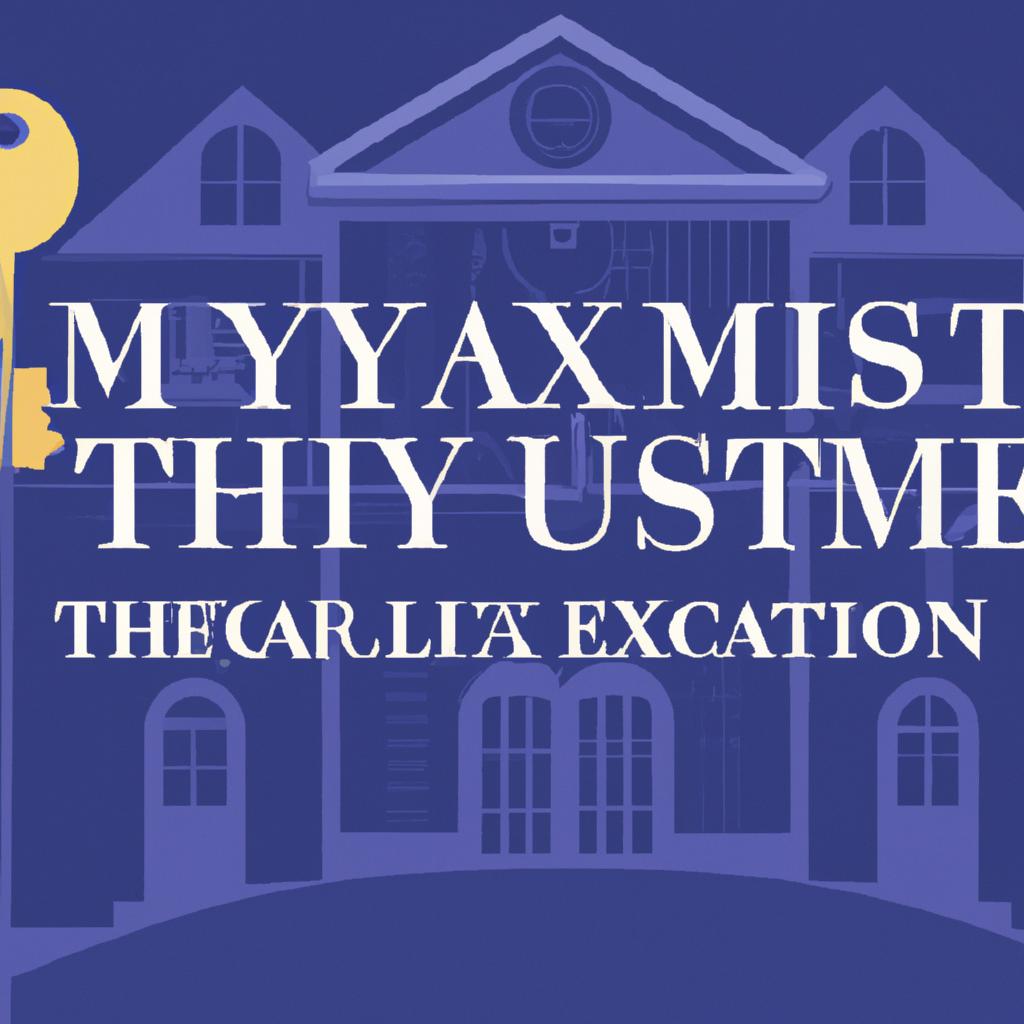In the realm of estate planning and inheritance, the estate tax identification number is a critical component that is often neglected. This seemingly simple sequence of numbers is the key to deciphering the intricacies of estate taxation and facilitating a smooth transfer of assets to heirs. In this article, we explore the significance of the estate tax ID number and its central role in the allocation of an individual’s wealth after their demise.
Grasping the Function of an Estate Tax ID Number
An Estate Tax ID Number is a vital component of estate planning, but its purpose may not be fully understood by many. This unique identifier, also referred to as an Employer Identification Number (EIN), is issued by the IRS to estates or trusts for tax reporting purposes. Here are some key aspects to help you comprehend the importance of an Estate Tax ID Number:
- Enables tax reporting: The primary function of an Estate Tax ID Number is to monitor the tax liabilities of an estate or trust separately from individual taxpayers. This ensures that the appropriate taxes are reported and paid on behalf of the estate.
- Legal obligations: In certain instances, possessing an Estate Tax ID Number may be a legal necessity for estates or trusts that meet specific criteria, such as generating income from assets or conducting business operations.
- Secures personal data: Utilizing an Estate Tax ID Number in tax filings safeguards the personal data of the estate’s beneficiaries, as it eliminates the need to use their Social Security Numbers for tax reporting.
Procedure for Acquiring an Estate Tax ID Number
To acquire an Estate Tax ID Number, you need to follow a few straightforward steps. Initially, collect all required documentation such as the deceased individual’s Social Security Number, death certificate, and any pertinent legal documents. Subsequently, you need to complete and submit an application for an Estate Tax ID Number to the IRS.
A crucial form you need to fill out is Form SS-4, the Application for Employer Identification Number. This form requests information about the deceased individual, the estate, and the executor or administrator managing the estate. Once the form is completed, you can submit it either online or by mail to the IRS.
After submitting your application, you may need to wait a few weeks for the IRS to process your request and issue you an Estate Tax ID Number. Upon receiving the number, ensure to store it in a secure place as it will be required for various estate administration tasks. By adhering to these simple steps, you can effortlessly obtain an Estate Tax ID Number for the estate you are managing.
Significance of Effectively Managing Your Estate Tax ID Number
When managing your estate tax ID number, it is essential to ensure that all associated information is accurate and current. A well-managed estate tax ID number can facilitate the process of filing taxes and prevent potential complications or penalties. It acts as a unique identifier for your estate, enabling the IRS to easily track and oversee your tax liabilities.
Effectively managing your estate tax ID number also allows for efficient estate planning. By keeping your tax ID information organized, you can better plan for the distribution of your assets and ensure that your loved ones are cared for according to your wishes. This can help reduce confusion and disputes among beneficiaries in the future.
Moreover, a well-managed estate tax ID number can help safeguard your estate against fraud and identity theft. By regularly monitoring and updating your tax ID information, you can decrease the risk of unauthorized access to your financial accounts and assets. This additional layer of security can provide peace of mind for you and your heirs.
Common Blunders to Evade When Handling Your Estate Tax ID Number
One common error to avoid when dealing with your estate tax ID number is neglecting to update your information. It’s vital to keep all your details up-to-date to ensure smooth transactions and compliance with tax regulations. Ensure to inform the relevant authorities promptly of any changes to your address, contact information, or ownership status.
Another pitfall to avoid is sharing your estate tax ID number with unauthorized individuals or entities. Protect your personal information to prevent identity theft or fraud. Only provide your tax ID number to trusted professionals, such as financial advisors or legal representatives, who need it for legitimate purposes.
Additionally, missing deadlines for filing tax returns or making payments can result in penalties and legal consequences. Stay organized and aware of key dates to fulfill your tax obligations on time. Keep track of important deadlines and set reminders to avoid expensive mistakes.
Lastly, neglecting to seek professional advice when necessary can be a significant oversight. Consult with tax experts or estate planning specialists to effectively navigate complex tax laws and regulations. Their expertise can help you optimize your tax strategies and minimize liabilities. Trusting professionals with experience in handling estate tax matters can save you time, money, and stress in the long run.
In Conclusion
Understanding the importance of an estate tax ID number is crucial for managing the financial affairs of a deceased individual. By obtaining this unique identifier, you can navigate the complexities of estate taxes with ease and ensure that the final wishes of your loved one are executed smoothly. Remember, knowledge is power when it comes to estate planning, so be sure to familiarize yourself with the details of this essential document. With the right information at your disposal, you can facilitate a smooth transition of assets and honor the legacy of those who have passed on.

The Basics of Estate Tax ID Numbers
When it comes to managing the affairs of a deceased individual, navigating the complexities of estate taxes can be a daunting task. One key component in this process is the Estate Tax ID Number, also known as an estate EIN (Employer Identification Number). But what exactly is an Estate Tax ID Number and how does it work?
What is an Estate Tax ID Number?
An Estate Tax ID Number is a unique nine-digit number assigned by the IRS to estates or trusts for tax reporting purposes. It is used to identify a specific estate or trust entity and is similar to a social security number for individuals. This number is necessary for filing tax returns, opening bank accounts, and conducting other financial transactions on behalf of the estate.
How to Obtain an Estate Tax ID Number
Obtaining an Estate Tax ID Number is a relatively straightforward process. The executor or administrator of the estate can apply for an EIN online through the IRS website or by submitting Form SS-4 by mail or fax. The application typically requires information about the deceased individual and the estate, such as the name of the decedent, the estate’s address, and the executor’s contact information.
The Benefits of Having an Estate Tax ID Number
- Streamlines tax reporting: Having an EIN simplifies the process of filing tax returns for the estate, ensuring compliance with IRS regulations.
- Facilitates financial transactions: An EIN is required for opening bank accounts, applying for loans, and handling other financial matters on behalf of the estate.
- Protects personal information: Using an EIN instead of the deceased individual’s social security number helps protect their sensitive information from identity theft.
Practical Tips for Managing an Estate Tax ID Number
Once you have obtained an Estate Tax ID Number, it is important to keep accurate records of all financial transactions and tax filings associated with the estate. Here are some practical tips for managing an EIN effectively:
- File tax returns on time: Make sure to file all required tax returns and pay any taxes owed in a timely manner to avoid penalties and interest charges.
- Keep track of financial transactions: Maintain detailed records of all income, expenses, and distributions related to the estate to provide accurate information to the IRS.
- Notify the IRS of any changes: If there are any significant changes to the estate, such as a change in ownership or structure, notify the IRS promptly to update the EIN information.
Case Study: John’s Experience with Obtaining an Estate Tax ID Number
John recently inherited his grandmother’s estate and needed to apply for an Estate Tax ID Number to handle the financial affairs of the estate. He found the process of obtaining an EIN to be relatively simple and straightforward, thanks to the IRS’s online application portal. Having an EIN allowed John to open a bank account in the estate’s name and efficiently manage the estate’s finances without using his personal information.
Conclusion
an Estate Tax ID Number is a crucial tool for managing the financial affairs of a deceased individual’s estate. By understanding what an EIN is and how to obtain one, executors and administrators can navigate the complexities of estate taxes more effectively and protect the estate’s assets. Remember to keep accurate records, file tax returns on time, and notify the IRS of any changes to ensure compliance with tax regulations.


